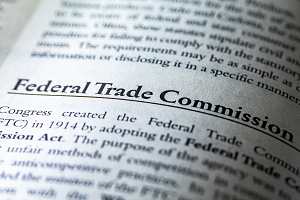The Federal Trade Commission (FTC) has introduced an across-the-board new rule with a goal to curtail the use of non-compete agreements across the U.S. This rule, set to take effect on September 4, 2024, represents a significant shift in employment law, potentially impacting millions of workers and countless businesses. Here’s what this means for employers and the steps you should take to stay compliant.
The Meaning of the New Rule
 The FTC’s new rule is designed to prohibit employers from entering into most new non-compete agreements and from enforcing existing ones, with limited exceptions such as certain senior executives. This change comes after considerable research and public feedback, showing how non-competes can hurt worker mobility and wages.
The FTC’s new rule is designed to prohibit employers from entering into most new non-compete agreements and from enforcing existing ones, with limited exceptions such as certain senior executives. This change comes after considerable research and public feedback, showing how non-competes can hurt worker mobility and wages.
Key Requirements for Employers
Assuming the rule withstands legal challenges, employers must:
- Notify Affected Workers: Employers need to inform current and former workers (excluding senior executives) that their non-compete clauses are no longer enforceable. The FTC provides model language for this notice, which can be delivered via hand, mail, email, or text message.
- Cease Enforcement: Stop enforcing existing non-compete clauses, except for those involving senior executives.
- Avoid New Non-Competes: Refrain from entering into new non-compete agreements with most employees.
Definition and Scope
The rule broadly defines non-compete clauses as any agreement that restricts a worker from seeking or accepting employment or starting a business in the U.S. post-employment. It’s particularly noteworthy that non-solicitation, non-recruitment, and confidentiality clauses are not considered non-competes unless they effectively prevent a worker from seeking new employment.
Why This Change?
This rule stems from President Biden’s 2021 Executive Order that focuses on promoting competition in the American economy. The FTC argues that non-competes suppress wages, hinder labor mobility, and stifle innovation and estimate that the ban could increase workers’ annual earnings by $53 billion nationwide.
Legal Challenges and Effective Date
 Three pending lawsuits challenging the FTC’s authority have already been filed, and could delay the rule’s implementation. The Northern District of Texas will decide by July 3, 2024 whether or not to halt the rule’s effective date while the case is reviewed.
Three pending lawsuits challenging the FTC’s authority have already been filed, and could delay the rule’s implementation. The Northern District of Texas will decide by July 3, 2024 whether or not to halt the rule’s effective date while the case is reviewed.
Practical Steps
for Employers
While the legalities continue the process of change, employers should prepare by:
- Strategy Development: Collaborate with legal counsel to develop a customized strategy, based on the needs and risk tolerance of your business.
- Inventory Existing Agreements: Review all current restrictive covenants, including those binding former employees, and identify which employees qualify as senior executives.
- Revise Restrictive Covenants: Ensure non-solicitation and confidentiality clauses are appropriately tailored and do not function as de facto non-competes.
- Trade Secret Protection: Strengthen policies and training around the handling of trade secrets to mitigate risks associated with the loss of non-compete agreements.
Stay Informed on Legal Developments
The FTC’s new rule on non-competes represents a major change in employment practices making it imperative for employers to stay informed and proactive for compliance and to protect their business interests. Monitor legal developments closely and consult with legal experts to navigate this transition effectively. For the latest updates, subscribe to industry insights and legal advisories.


